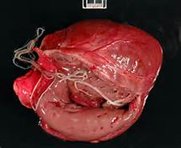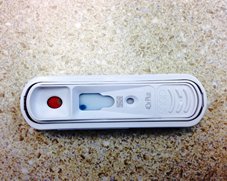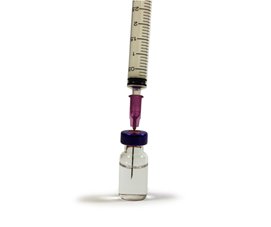What Every Pet Owner Should Know About Heartworm Disease

What is heartworm disease?
Heartworm is a serious, and even fatal disease if left untreated. Microscopic larvae are passed into the blood by infected mosquitoes that bite your dog or cat and adult worms grow inside the heart itself and clog the major blood vessels.

How can you prevent your pet from getting heartworms?
Heartworm prevention should be given year-round to be most effective. Mosquitos are less active in winter, but weather conditions vary dramatically from year to year, with occasional warm days even during the colder months. Many pet owners now worry about the amount of chemicals their pets are exposed to. Heartworm preventatives do contain substances that kill worm larva, but have been rigorously tested to ensure their safety for your pet. Skipping preventatives is not worth the risk. Preventative for dogs come in oral, topical and injectable form. The injectable form provides 6 months of protection. For cats, the only available form is topical.

How do I know if my pet has heartworms?

Heartworm disease can be easily diagnosed by a simple blood test, and dogs should be checked every 1-2 years as a precaution. Many pet owners fail to give the preventatives every single month all year round. Likewise, even though heartworm preventatives are extremely effective when given consistently every month of the year, there have been rare cases of dogs who were positive despite being on preventatives. In these cases, the drug manufacturer often pays for treatment if there were no missed doses. If there is a break in giving the preventative, then a heartworm test should be done 6 months after the missed dosage.

How long does it take heartworms to show up after exposure?
Heartworm can take ~6-7 months after exposure to show up on the blood test. Consider retesting rescue/shelter dogs in 6 months, even if they test negative initially.
Can heartworm affects cats?

Heartworm disease affects cats too. Cats are not as easily infected as dogs, but infection in cats can result in sudden death. Heartworm disease in cats is very different than heartworm disease in dogs.
What are the symptoms of heartworm disease?

Heartworm positive dogs can have no signs of infection for years. When symptoms do occur, they can include a cough, shortness of breath, weakness, nervousness, listlessness, and loss of stamina during walking or exercise. Some dogs may die suddenly during exercise or excitement.
The most common clinical signs for a cat that is heartworm positive include coughing, wheezing, difficulty breathing, intermittent vomiting, lethargy or weight loss. Some cats will have very mild symptoms, while some cats die suddenly.
What is the prevalence in our area?
Heartworm disease is present in all 50 states. The incidence is on the rise and has been increasing for the last 5 years. As of the end of 2018, levels of positive cases are up 20% from 2013. According to the Companion Animal Parasite Council (CAPC) Cincinnati, Ohio ranked at the top of the list for the highest percentage increase in positive heartworm test in January, 2019.

Is heartworm disease treatable?
Heartworm disease is treatable in dogs, especially if caught early, before the pet goes into heart failure. There is no treatment for cats that are heartworm positive.

The most common myths about heartworm:
Myth Truth
| Heartworms do not exist and are made up by drug companies. | Heartworms are real worms that can live for 5-7 years in the heart of a dog. Heartworms can live in cats for 2-4 years. |
| A fecal test will determine if my pet has heartworms. | Heartworms are found in the heart and bloodstream. A blood test is required to detect their presence. |
| My pet stays indoors, so they are not at risk for heartworm disease. | Heartworm is transmitted through the bite of an infected mosquito. Since mosquitos are found inside our homes, pets are still at risk. |
| My state doesn’t have heartworm so my pet can’t get it. | Heartworm disease has been reported in all 50 states and continues to spread rapidly. |
| I use home remedies to protect my pet, and they work just fine. | There is no scientific proof that home remedies provide proper protection. An FDA approved medication should be used to prevent heartworms. |
| Heartworm medications are toxic to my pet. | Heartworm preventatives have a very wide margin of safety. Consult with one of our veterinarians to find the product best for your pet. |
| My pet has thick fur that will protect him/her. | Mosquitoes will bite where this is little to no fur, such as the belly or legs. |
| Heartworm prevention isn’t needed in the winter when there are no mosquitos. | Recent studies have found that mosquitos are adapting to the colder climates, especially when we experience warm spells. They can also thrive in warm spots such as sewers and alleys. |
| Heartworm prevention is expensive. I would rather spend to treat rather than prevent. | Heartworm treatment is lengthy and can be hard on your dog. It requires careful monitoring and hospitalization. Treatment is more expensive than prevention. There is no treatment for heartworm positive cats. |

